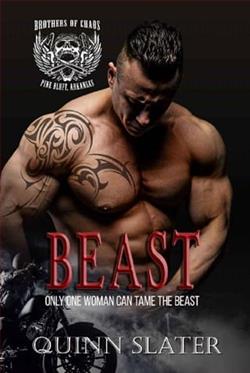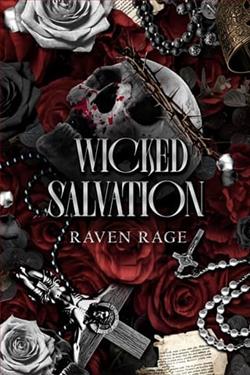Page 46 of The Wicked Lies of Habren Faire
“Brilliant, of course. Smarter than me, though it hardly matters.”
I arch a brow. “Why?”
“I’m better looking,” he replies with a grin. “And everyone always liked me more, apart from our mother—but she didn’t much like him, either. She left me with him when she got bored of playing house. He raised me, I suppose.”
I toy with the idea of calling him a burden and sympathizing with his brother, but something stays my tongue. His knuckles are white on the blankets. I finally turn to look at him, but his eyes dart away. Wearerather alike, I’ll give him that, and every miserable thing we share just makes him feel a little more human. I think that should scare me. It doesn’t.
“Do you see your brother often?”
Neirin gives a dry laugh. “Mercifully, no. And don’t ask about my mother—she’s long gone. All she left behind was her pet goshawk. My brother took the hawk into his care, along with me.”
“What happened to the bird?”
He’s tight-lipped, rigid. Neirin’s brother has left a mark upon him. It’s strange, knowing that he has a family somewhere, and he hasn’t simply been molded from perfect clay.
“My brother lavished it with food and a cage so fine that even a thinking creature wouldn’t have complained. He loved it wholeheartedly, but he still cut its wings.” Neirin’s smile is solemn. “The moment it grew new feathers, it flew away.”
“Good for the hawk.” I stare up at the ceiling. “Some creatures are too proud to be caged.”
“Have people tried to cage you, Habren?”
“I’m already trapped. By money and mining barons back home.” I pause before adding, “And by you, here.”
He fidgets with the sheets. “We’re partners. Equals.”
I bite the inside of my cheek. “No, we’re not. You’ve never been inside a cage. You wouldn’t ask if you had.”
“Why?”
“Because you’d know,” I say, “that people don’ttryto cage you. You’re born in the cage, and no matter how hard you fight, you aren’t fighting for freedom, not really. You’re fighting for a better view between the bars.”
“I thought we were talking about our families,” he says, and I can hear the smirk in his voice. “For someone who loves hers, you’re thinking an awful lot about cages.”
I try to shrug it off and fail. “I am trapped, but I love them too much to leave.”
Neirin pulls a face. “I can’t imagine living like that. I barely remember my mother, and the less said about my brother, the better.”
“That’s very sad,” I tell him. “I’d give my right arm to hug my mam again, and when I was small I used to cry justthinkingabout the day Ceridwen would get married and leave me.”
A gentle smile plays on his lips. It’s perhaps the first genuine smile he’s ever given me, and, small and sad as it is, it makes my heart stutter.
“What rotten luck,” Neirin says, “that a human like you, who has so little time with her family, can love them so very much, while I have an eternity with mine and not even a kernel of affection to spare them.”
He’s made me sound like a saint, but I’m far from it. My family test me. Gran is ever disapproving; Dad is so like me, so angry, that it got him sent far away. Mam was flighty and near unreliable, but I’ve canonized her so well that I’ve almost forgotten how frustrating she could be, while Ceridwen knows how to maim me like no other.
Whenever Gran told me about her sister, how she’d wandered off one day and never come back, I liked to fantasize about the pain of it. I’d make myself quite sick at the idea. But in my dreams, I was always the one leaving. Always battling homesickness and the brilliant terror of remaking myself into the person I so badly wanted to be. I never thought that it could be me worrying at the threshold, watching the garden path each night, carrying that kindling of hope in my chest that my sister would come home.
“I pitied my gran,” I say. “For having lost so much. For being old.”
Neirin lies back down, staring at the ceiling. “Old is worthy ofpity. You lose any beauty, lose control of your body—even your own mind.”
I remain upright, not daring to follow him, and I think about Richard downstairs, who lost all three along with his name.
“That’s true,” I admit after a beat of silence, “but there’s more to it than that.”
“What else is there?”
I used to think that my gran was the loneliest person in the world. Trapped in her house with all those ghosts and unanswered questions—everything she once wanted to be and now doesn’t even dare say aloud. And yet she would always be at the table when I came home from school, and she would listen to me recite facts everyone knows as if I were the first to discover them.















